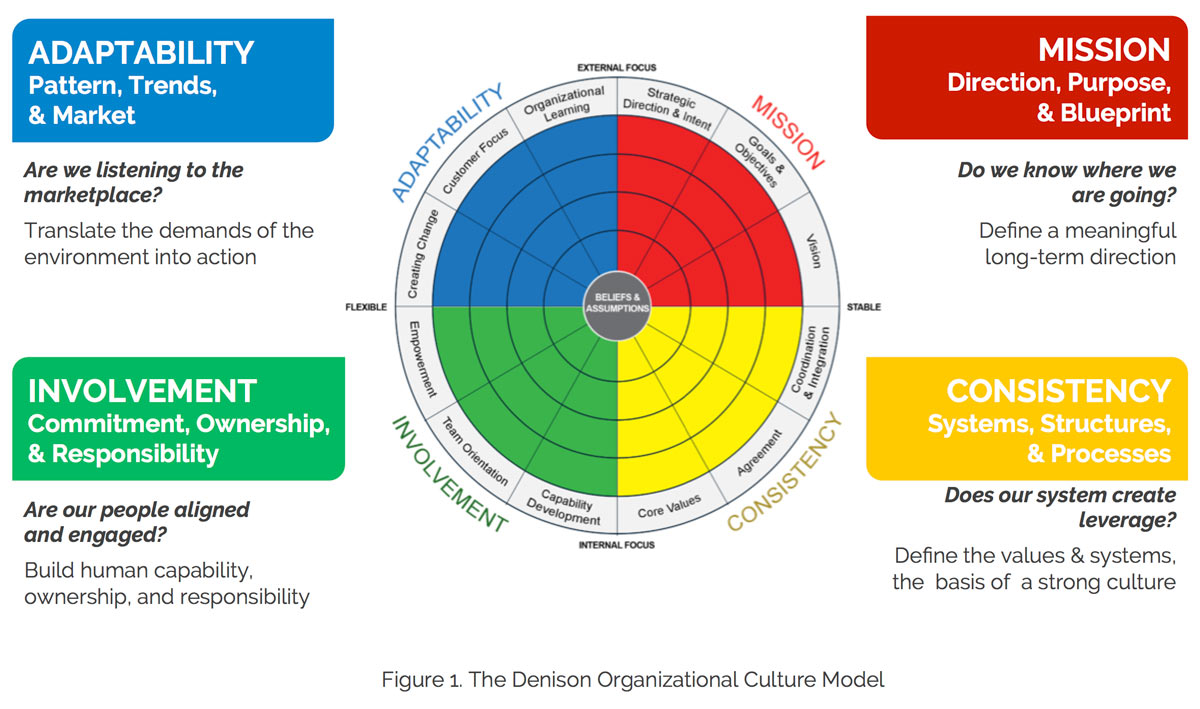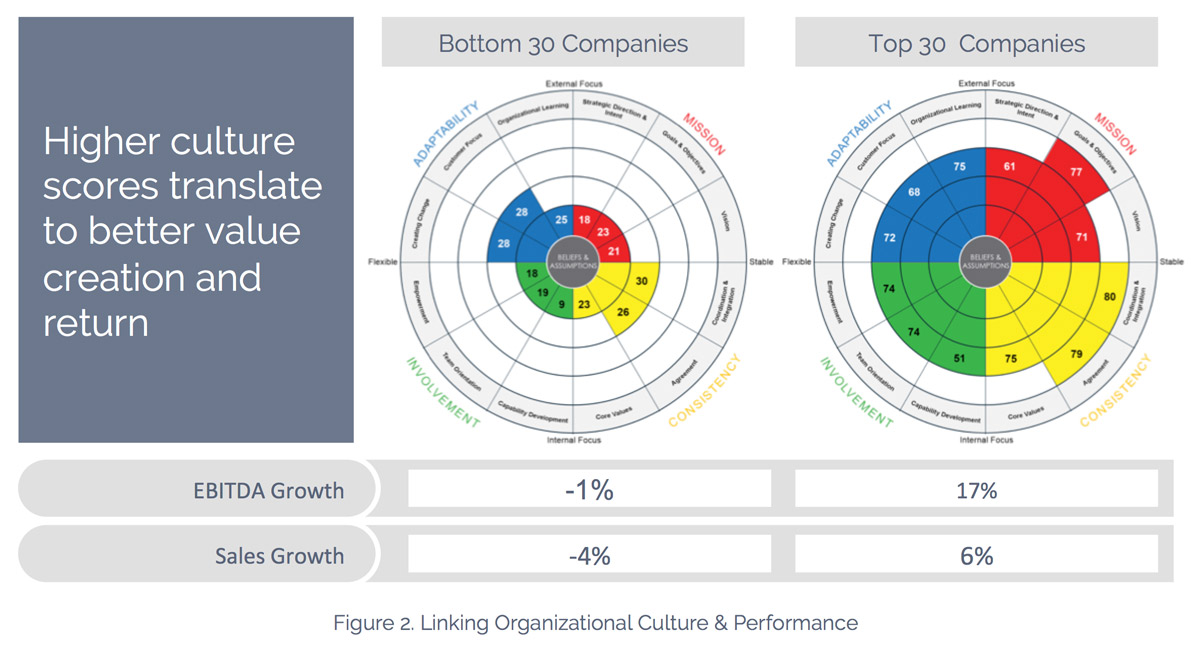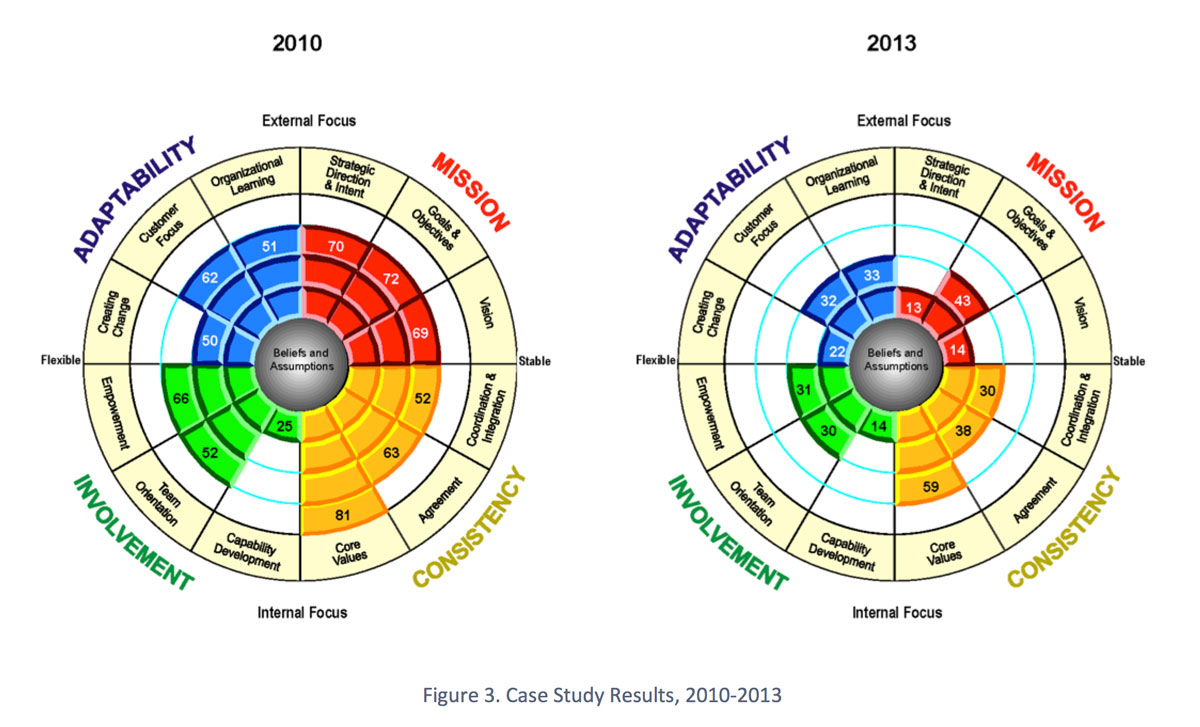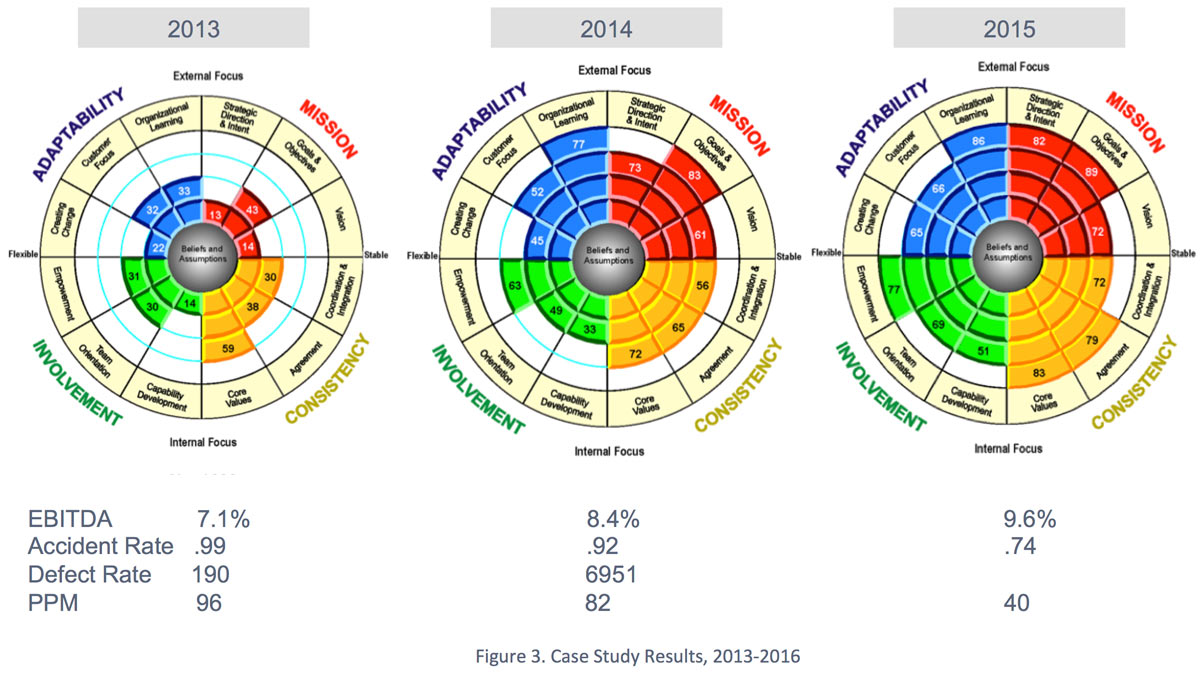A Case Study in How Culture Can Make or Break an Organization
One of the most important roles of the Board of Directors is to serve as a key strategic asset for their corporation. The Directors are charged with safeguarding the firm’s competitive advantage, ensuring that the firm is talent rich, and building a winning, ethical strategy supported by deep operating excellence that drives long-term shareholder value. But many Directors spend their time focused on key financial metrics and major strategic priorities, and fail to recognize that their mission cannot be fulfilled without paying attention to the culture and character of the organization. Building a forward-looking approach to the people, the talent, and the culture are the foundation of a high performance organization.
Years ago, corporate scandals at Enron and WorldCom caused directors a lot of embarrassment. But more recently, the same lack of oversight of corporate culture and leadership has led to a new round of dramatic failures. Wells Fargo fired 5300 employees involved in their “cross-selling” strategy, which had open millions of hidden accounts in their customers’ names to meet their performance targets.
But the scale of this scandal makes it clear that the issue wasn’t 5300 individual “bad apples,” but rather the “bad orchard” that created them. Volkswagen lost huge credibility claiming that a decade-old process that affected millions of vehicles was a result of what the CEO described as “the terrible mistakes of a few people” just days before he got fired. It soon became clear that the implementation of this flawed strategy required the ongoing efforts of thousands of people all over the world. Both of these examples show how a failure in the corporate culture can lead to a failure in the business. Maybe it is time to make sure that corporate culture is front and center on the board agenda.
Directors often comment that culture is hard to define and hard to measure. Nevertheless, every director has the responsibility to take the time to study the concept and become a subject matter expert. The following case study shows how one company measured its culture and was consequently able to turn itself around.
Case Study
Our case study is a manufacturing firm that tracked the culture of their organization over five years. This case study shows a close relationship between the culture and the performance of the business. The progress was tracked using the well-known method, the Denison Organizational Culture Survey. The Denison model emphasizes four culture traits that research shows have the biggest impact on business performance: A strong sense of mission, a high level of adaptability, a deep commitment to the involvement of their people, and a strong foundation of consistency.

There’s a lot of research on this model and the findings are pretty clear: Organizations that have better cultures tend to have better performance. Figure 2 shows an example of the link between culture and performance. This study looked at 60 companies that were owned by a private equity firm, and studied the performance differences between the ones with high & low culture scores. The results speak for themselves: The firms with better culture scores have much stronger growth in both EBITDA and Sales.

When our client first assessed their culture in 2010, their results were good, but not great. These results were shared with the Board, and the leadership team seemed to have a plan for action that would help improve the business. But, in fact, this organization was beginning a period of decline. Performance rapidly deteriorated over the next three years.
In 2013, the organization repeated the assessment, and the results were much worse. But the Board didn’t see the culture results, even though the performance impact was clear everywhere in the business. Soon, the Board decided to replace the CEO. When the Board finally saw the 2013 culture results, they understood more clearly how far the organization had declined and why the performance problems had become so severe. Figure 3 shows the results for 2010-2013.

The new CEO had his work cut out for him. But the culture survey gave the Board and the new leader a road map of the issues to tackle. From this low point in 2013, improvements in both culture and performance turned things around. If only the Board had tracked these results more closely from 2010 to 2013!

Conclusions
There are three key takeaways for directors from this case study:
- There is a direct correlation between a company’s culture and performance—become an expert on how this works.
- It is the board’s role to understand how the company defines its culture and what processes and tools are needed to validate or monitor its culture.
- It is important to have executives on the board who understand the impact of culture on business performance and who have experience leading companies with winning cultures.
Be sure that culture is on your 2017 board agenda. A helpful start would be to have experts in the field expose the board and the management team to examples of winning and losing cultures, techniques to measure culture, and yellow flags that will alert management and the board of potential issues.

In the process, be sure to ask members of the leadership team to define the company’s current culture. This can be pretty revealing. For example, in 2013 the executives in our case study firm were asked to describe the culture of the firm in terms of an animal. One of the executives suggested that the company was like Eeyore from Winnie-the-Pooh — head down, disengaged, walking aimlessly around, bumping into walls. The “A” players had already left the organization or were on their way while Eyeore and his friends remained behind.
In the end, the board proved to be a true strategic asset to the company. They will never forget the importance of culture and the impact that it has on the business.
Connect with Insights from Denison
If you’d like to be kept up to date when we release a new TRANSFORM article or important piece of research, we can notify you so you have immediate access. Yes, please let me know.

